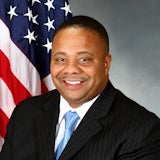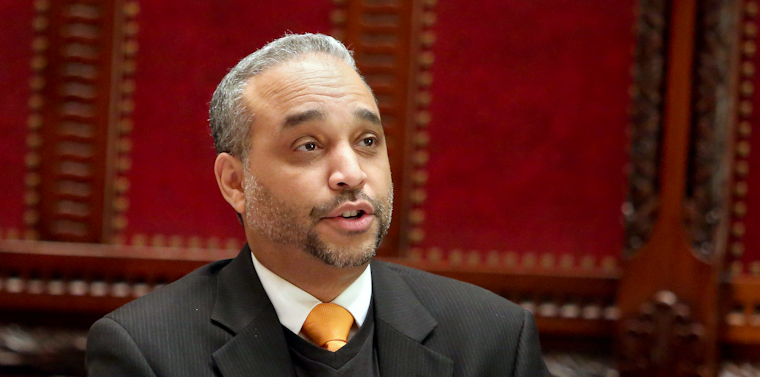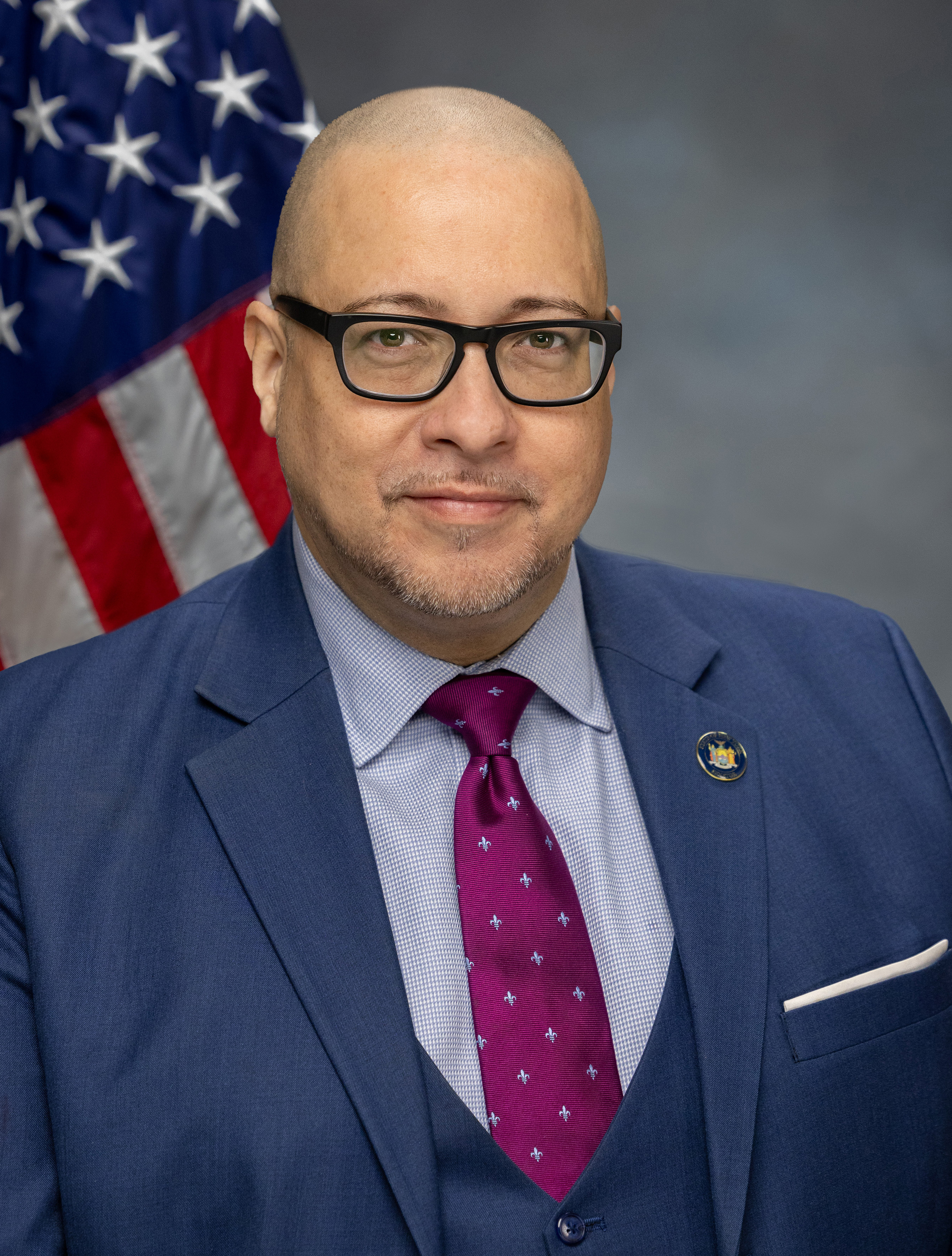[ ] is old law to be omitted.
LBD14730-02-8
S. 7722 2
PROSECUTION'S DIRECTION OR CONTROL, WHICH RELATE TO THE SUBJECT MATTER
OF THE CASE OR ARE OTHERWISE RELEVANT, INCLUDING BUT NOT LIMITED TO:
(I) ALL STATEMENTS, WRITTEN OR RECORDED OR SUMMARIZED IN ANY WRITING
OR RECORDING, AND THE SUBSTANCE OF ALL ORAL STATEMENTS, MADE BY THE
DEFENDANT OR A CO-DEFENDANT;
(II) ALL STATEMENTS, WRITTEN OR RECORDED OR SUMMARIZED IN ANY WRITING
OR RECORDING, AND THE SUBSTANCE OF ALL ORAL STATEMENTS, MADE BY PERSONS
WHOM THE PROSECUTOR KNOWS TO HAVE EVIDENCE OR INFORMATION THAT RELATE TO
THE SUBJECT MATTER OF THE CASE OR ARE OTHERWISE RELEVANT;
(III) ALL PHOTOGRAPHS, TANGIBLE OBJECTS, VIDEO AND AUDIO RECORDINGS,
AND ELECTRONIC RECORDINGS AND DATA, INCLUDING BUT NOT LIMITED TO CELL
PHONE TRIANGULATION DATA, PEN REGISTRY AND WIRE TAPPING DATA, THAT
RELATE TO THE SUBJECT MATTER OF THE CASE OR ARE OTHERWISE RELEVANT; WITH
RESPECT TO TANGIBLE OBJECTS OBTAINED FROM, OR ALLEGEDLY POSSESSED BY,
THE DEFENDANT OR A CO-DEFENDANT, THE PROSECUTION SHALL PROVIDE A SUMMARY
INDICATING WHETHER THE OBJECT WAS PHYSICALLY OR CONSTRUCTIVELY POSSESSED
BY THE DEFENDANT, WHETHER THE OBJECT WAS RECOVERED DURING A SEARCH OR
SEIZURE BY A PUBLIC SERVANT OR AN AGENT THEREOF, WHETHER THE PROSECUTION
INTENDS TO PROVE THE OBJECT WAS RECOVERED BY A PUBLIC SERVANT OR AGENT
THEREOF AFTER BEING ABANDONED BY THE DEFENDANT, WHETHER THE PROSECUTION
INTENDS TO PROVE THE DEFENDANT'S POSSESSION OF THE OBJECT BY MEANS OF A
STATUTORY PRESUMPTION OF POSSESSION, AND THE LOCATION WHERE THE OBJECT
WAS RECOVERED;
(IV) REPORTS AND RECORDS OF PHYSICAL OR MENTAL EXAMINATIONS OF THE
DEFENDANT OR THE COMPLAINING WITNESS OR OF SCIENTIFIC TESTS OR EXPER-
IMENTS, INCLUDING ALL DATA, CALCULATIONS, OR WRITINGS OF ANY KIND,
INCLUDING BUT NOT LIMITED TO, PRELIMINARY TESTS OR SCREENING RESULTS AND
BENCH NOTES;
(V) ALL EXHIBITS AND DEMONSTRATIVE EVIDENCE THE PROSECUTOR INTENDS TO
INTRODUCE AT A HEARING OR TRIAL THAT RELATE TO THE SUBJECT MATTER OF THE
CASE OR ARE OTHERWISE RELEVANT;
(VI) THE NAMES, KNOWN ALIASES, ADDRESSES AND BIRTH DATES OF ALL
PERSONS, OTHER THAN LAW ENFORCEMENT PERSONNEL, WHOM THE PROSECUTOR KNOWS
TO HAVE EVIDENCE OR INFORMATION THAT RELATE TO THE SUBJECT MATTER OF THE
CASE OR ARE OTHERWISE RELEVANT, AS WELL AS A DESIGNATION BY THE PROSECU-
TOR AS TO WHICH OF THOSE PERSONS MAY BE CALLED AS WITNESSES;
(VII) ANY DOCUMENTATION AND SUMMARY OF PRIOR COMPLAINTS, INDICTMENTS,
CONVICTIONS, DISPOSITIONS, AND FINDINGS OF FALSE TESTIMONY OF ALL
DEFENDANTS AND OF ANY PERSON THE PROSECUTOR HAS DESIGNATED AS A CIVILIAN
WITNESS WHO MAY BE CALLED AT TRIAL PURSUANT TO SUBPARAGRAPH (VI) OF THIS
PARAGRAPH;
(VIII) THE NAME, RANK, SHIELD NUMBER AND BUSINESS ADDRESS OF ALL LAW
ENFORCEMENT PERSONNEL WHOM THE PROSECUTOR KNOWS TO HAVE EVIDENCE OR
INFORMATION THAT RELATE TO THE SUBJECT MATTER OF THE CASE OR ARE OTHER-
WISE RELEVANT;
(IX) ANY DOCUMENTATION AND SUMMARY OF IMPEACHMENT MATERIAL, INCLUDING
BUT NOT LIMITED TO: PRIOR COMPLAINTS, INDICTMENTS, CONVICTIONS, PENDING
AND CLOSED INVESTIGATION RECORDS, AND INSTANCES WHERE SAID PERSON HAS
BEEN FOUND INCREDIBLE, OF ANY PERSON THE PROSECUTOR HAS DESIGNATED AS A
LAW ENFORCEMENT OFFICER OR AGENT THEREOF WHO PARTICIPATED IN THE INVES-
TIGATION THAT RELATES TO THE SUBJECT MATTER OF THE CASE PURSUANT TO
SUBPARAGRAPH (VII) OF THIS PARAGRAPH;
(X) ALL TRANSCRIPTS OF THE TESTIMONY OF ANY PERSON WHO HAS TESTIFIED
BEFORE ANY GRAND JURY WHEN THE TESTIMONY RELATES TO THE SUBJECT MATTER
OF THE CASE OR IS OTHERWISE RELEVANT;
S. 7722 3
(XI) A SUMMARY, PURSUANT TO SUBDIVISION TWO OF THIS SECTION OF ALL
CORPOREAL OR NON-CORPOREAL OR VOICE IDENTIFICATION PROCEDURES, WHETHER
OR NOT AN IDENTIFICATION WAS MADE, AND ALL DOCUMENTS, PHOTOGRAPHS, AND
OTHER MATERIALS RELATING THERETO;
(XII) ALL FACTS, EVIDENCE, AND INFORMATION FAVORABLE TO THE DEFENDANT,
INCLUDING BUT NOT LIMITED TO INFORMATION THAT TENDS TO NEGATE THE
DEFENDANT'S GUILT OR THAT TENDS TO MITIGATE THE DEFENDANT'S CULPABILITY
AS TO A CHARGED OFFENSE, OR THAT TENDS TO SUPPORT A POTENTIAL DEFENSE
THERETO, OR THAT TENDS TO SUPPORT A MOTION TO SUPPRESS EVIDENCE ON
CONSTITUTIONAL OR STATUTORY GROUNDS, OR THAT WOULD TEND TO REDUCE THE
PUNISHMENT OF THE DEFENDANT, OR THAT IS RELEVANT TO A WITNESS'S CREDI-
BILITY, WITHOUT REGARD TO THE MATERIALITY OF THE INFORMATION;
(XIII) A SUMMARY OF ALL DISCUSSIONS, OVERT OR TACIT PROMISES, REWARDS,
INDUCEMENTS, OR OFFERS OF LENIENCY MADE TO A POTENTIAL PROSECUTION
WITNESS, AND COPIES OF ALL DOCUMENTS AND MATERIALS RELEVANT TO SUCH
PROMISE, REWARD, INDUCEMENT, OR OFFER OF LENIENCY;
(XIV) A SUMMARY OF ALL EVIDENCE OR INFORMATION THAT HAS BEEN PROVIDED
BY A CONFIDENTIAL INFORMANT OR JAILHOUSE INFORMANT AND THAT RELATE TO
THE SUBJECT MATTER OF THE CASE OR ARE OTHERWISE RELEVANT;
(XV) INFORMATION REGARDING WHETHER A SEARCH WARRANT HAS BEEN EXECUTED
AND ALL DOCUMENTS AND ELECTRONIC RECORDINGS OR RECORDS RELATING THERETO,
INCLUDING BUT NOT LIMITED TO THE WARRANT, THE WARRANT APPLICATION, ALL
SUPPORTING AFFIDAVITS, A POLICE INVENTORY OF ALL PROPERTY SEIZED UNDER
THE WARRANT, AND A TRANSCRIPT OF ALL TESTIMONY OR OTHER ORAL COMMUNI-
CATIONS OFFERED IN SUPPORT OF THE WARRANT APPLICATION;
(XVI) INFORMATION REGARDING WHETHER THERE HAS BEEN ANY ELECTRONIC
SURVEILLANCE, INCLUDING BUT NOT LIMITED TO WIRE TAPPING OR VIDEO
SURVEILLANCE, OF A RESIDENCE OR BUSINESS OR TELEPHONE OR COMPUTER OR
OTHER ELECTRONIC OR DIGITAL DEVICE OR SOCIAL MEDIA ACCOUNTS OF THE
DEFENDANT, OR OF CONVERSATIONS TO WHICH THE DEFENDANT OR A CO-DEFENDANT
WAS A PARTY, AND ALL RECORDINGS, TRANSCRIPTS, DOCUMENTS, WARRANTS AND
WARRANT APPLICATION MATERIALS RELATING THERETO;
(XVII) INTENDED EXPERT OPINION EVIDENCE, INCLUDING THE NAME, BUSINESS
ADDRESS, CURRENT CURRICULUM VITAE, AND A LIST OF PUBLICATIONS OF EACH
INTENDED EXPERT WITNESS, AND ALL REPORTS PREPARED BY THE EXPERT THAT
PERTAIN TO THE CASE, OR IF NO REPORT IS PREPARED, A WRITTEN STATEMENT OF
THE FACTS AND OPINIONS TO WHICH THE EXPERT IS EXPECTED TO TESTIFY AND A
SUMMARY OF THE GROUNDS FOR EACH OPINION, AND ANY INSTANCES WHERE THE
EXPERT HAS BEEN FOUND INCREDIBLE OR TO HAVE BEEN IN PERJURY; IF SUCH
INTENDED EXPERT OPINION EVIDENCE IS NOT FURNISHED WITHIN FIFTEEN DAYS OF
THE EXPERT WITNESS'S COMPLETION OF THE REPORT, THE EXPERT WITNESS MAY,
UPON APPLICATION BY THE DEFENDANT, BE BARRED FROM TESTIFYING AT TRIAL;
(XVIII) A LIST OF ALL MISCONDUCT AND CRIMINAL ACTS OF THE DEFENDANT
NOT CHARGED IN THE INDICTMENT, SUPERIOR COURT INFORMATION, PROSECUTOR'S
INFORMATION, INFORMATION, OR SIMPLIFIED INFORMATION CHARGING A MISDEMEA-
NOR, WHICH THE PROSECUTION INTENDS TO USE AT TRIAL FOR PURPOSES OF
IMPEACHING THE CREDIBILITY OF THE DEFENDANT OR AS SUBSTANTIVE PROOF OF
ANY MATERIAL ISSUE IN THE CASE; AND
(XIX) ALL DEPARTMENT OF CRIMINAL JUSTICE SERVICES CRIMINAL HISTORY
RECORD CHECKS FOR ALL WITNESSES WHO THE PROSECUTION INTENDS TO CALL, ALL
DEFENDANTS, AND ALL CO-DEFENDANTS.
(B) NOTHING IN THIS SUBDIVISION SHALL BE INTERPRETED TO LIMIT THE
SCOPE OF THE PROSECUTION'S DISCOVERY OBLIGATIONS. IN ALL QUESTIONS ARIS-
ING REGARDING THE SCOPE OF THE PROSECUTION'S OBLIGATION TO DISCLOSE TO
THE DEFENSE AND TO PERMIT THE DEFENSE TO DISCOVER, INSPECT, COPY OR
PHOTOGRAPH ALL ITEMS AND INFORMATION IN THE POSSESSION, CUSTODY OR
S. 7722 4
CONTROL OF THE PROSECUTION, OR PERSONS UNDER THE PROSECUTION'S DIRECTION
OR CONTROL, WHICH RELATE TO THE SUBJECT MATTER OF THE CASE OR ARE OTHER-
WISE RELEVANT, THERE SHALL BE A PRESUMPTION IN FAVOR OF DISCLOSURE.
2. IDENTIFICATION PROCEDURE SUMMARIES. SUMMARIES DISCLOSED PURSUANT TO
SUBPARAGRAPH (XI) OF PARAGRAPH (A) OF SUBDIVISION ONE OF THIS SECTION
SHALL INCLUDE:
(A) THE DATE, TIME, LOCATION, TYPE, AND RESULT OF EACH PROCEDURE;
(B) THE NAMES OF ALL PERSONS PRESENT AT EACH PROCEDURE IF KNOWN TO LAW
ENFORCEMENT;
(C) THE NAME AND ADDRESS OF EACH EYEWITNESS AT EACH PROCEDURE;
(D) THE NUMBER AND SOURCE OF ALL PHOTOGRAPHS OR LINEUP PARTICIPANTS
USED IN EACH PROCEDURE;
(E) A COPY OF ALL PHOTOGRAPHS, PHOTOGRAPHIC ARRAYS, AND PHOTOGRAPHS
TAKEN OF ALL LINEUPS VIEWED BY AN EYEWITNESS;
(F) THE DESCRIPTIONS OF SUSPECTS ENTERED INTO AN ELECTRONIC OR COMPUT-
ER PHOTOGRAPHIC IDENTIFICATION SYSTEM, AND A SAVED COLLECTION OF THE
PHOTOGRAPHIC IMAGES GENERATED BY EACH DESCRIPTION AND VIEWED BY EACH
EYEWITNESS;
(G) WHETHER THE PROCEDURE WAS SIMULTANEOUS OR SEQUENTIAL;
(H) ALL STATEMENTS MADE IN THE PRESENCE OF OR BY EACH EYEWITNESS;
(I) WHETHER THE EYEWITNESS SELECTED A DIFFERENT PERSON AS THE PERPE-
TRATOR OR INDICATED A BELIEF THAT HE OR SHE COULD NOT IDENTIFY THE
PERPETRATOR;
(J) WHETHER BEFORE THE PROCEDURE THE EYEWITNESS WAS INSTRUCTED THAT
THE PERPETRATOR MIGHT OR MIGHT NOT BE PRESENT; AND
(K) WHETHER THE ADMINISTRATOR OF EACH PROCEDURE KNEW WHICH PERSON WAS
THE SUSPECT, AND WHETHER, BEFORE THE PROCEDURE, THE EYEWITNESS WAS
INSTRUCTED THAT THE ADMINISTRATOR DID NOT KNOW WHICH PERSON WAS THE
SUSPECT.
3. DISCLOSURE PRIOR TO GUILTY PLEA DEADLINE. (A) UPON A FELONY
COMPLAINT, WHERE THE PROSECUTOR HAS MADE A PRE-INDICTMENT GUILTY PLEA
OFFER, THE PROSECUTOR MUST DISCLOSE TO THE DEFENSE, AND PERMIT THE
DEFENSE TO DISCOVER, INSPECT, COPY OR PHOTOGRAPH, AND TEST ALL ITEMS AND
INFORMATION THAT WOULD BE DISCOVERABLE UNDER SUBDIVISION ONE OF THIS
SECTION THAT ARE IN THE POSSESSION, CUSTODY OR CONTROL OF THE PROSE-
CUTION. SUCH DISCLOSURE MUST BE COMPLETED WITHIN A REASONABLE TIME, BUT
NOT LESS THAN THREE DAYS, PRIOR TO THE EXPIRATION DATE OF ANY GUILTY
PLEA OFFER BY THE PROSECUTION OR ANY DEADLINE IMPOSED BY THE COURT FOR A
GUILTY PLEA. A DEFENDANT MAY WAIVE HIS OR HER RIGHTS UNDER THIS SUBDI-
VISION; EXCEPT THAT A GUILTY PLEA OFFER MAY NOT BE CONDITIONED ON SUCH
WAIVER.
(B) UPON AN INDICTMENT, SUPERIOR COURT INFORMATION, PROSECUTOR'S
INFORMATION, SIMPLIFIED INFORMATION CHARGING A MISDEMEANOR, INFORMATION,
OR MISDEMEANOR COMPLAINT, THE PROSECUTION MUST COMPLY WITH ALL DISCLO-
SURE REQUIRED BY SUBDIVISION ONE OF THIS SECTION AND FILE A CERTIFICATE
OF COMPLIANCE PURSUANT TO SECTION 240.45 OF THIS ARTICLE AT LEAST SEVEN
DAYS PRIOR TO THE EXPIRATION DATE OF ANY GUILTY PLEA OFFER BY THE PROSE-
CUTION OR ANY DEADLINE IMPOSED BY THE COURT FOR A GUILTY PLEA. IF THE
PROSECUTION DOES NOT COMPLY WITH THIS SUBDIVISION, THE OFFER SHALL BE
DEEMED AVAILABLE TO THE DEFENDANT UNTIL SEVEN DAYS AFTER THE PROSECUTION
HAS FILED A CERTIFICATE OF COMPLIANCE. A DEFENDANT MAY WAIVE HIS OR HER
RIGHTS UNDER THIS SUBDIVISION; EXCEPT THAT A GUILTY PLEA OFFER MAY NOT
BE CONDITIONED ON SUCH WAIVER.
4. RECIPROCAL DISCOVERY. THE DEFENDANT SHALL, SUBJECT TO CONSTITU-
TIONAL LIMITATIONS AND WITHIN NINETY DAYS OF WHEN THE PROSECUTION FILES
ITS CERTIFICATE OF COMPLIANCE PURSUANT TO SECTION 240.45 OF THIS ARTI-
S. 7722 5
CLE, DISCLOSE TO THE PROSECUTION, AND PERMIT THE PROSECUTION TO DISCOV-
ER, INSPECT, COPY, PHOTOGRAPH, OR TEST:
(A) INTENDED EXPERT OPINION EVIDENCE, INCLUDING THE NAME, BUSINESS
ADDRESS, CURRENT CURRICULUM VITAE, AND A LIST OF PUBLICATIONS OF EACH
INTENDED EXPERT WITNESS, AND ALL REPORTS PREPARED BY THE EXPERT THAT
PERTAIN TO THE CASE, OR IF NO REPORT IS PREPARED, A WRITTEN STATEMENT OF
THE FACTS AND OPINIONS TO WHICH THE EXPERT IS EXPECTED TO TESTIFY AND A
SUMMARY OF THE GROUNDS FOR EACH OPINION;
(B) ALL PHOTOGRAPHS, TANGIBLE OBJECTS, VIDEO AND AUDIO RECORDINGS,
ELECTRONIC RECORDINGS AND DATA, REPORTS OF PHYSICAL OR MENTAL EXAMINA-
TIONS OF ANY PERSON OR OF SCIENTIFIC TESTS OR EXPERIMENTS, AND EXHIBITS
THAT THE DEFENDANT INTENDS TO INTRODUCE AT TRIAL IN HIS OR HER CASE IN
CHIEF; AND
(C) ALL STATEMENTS, WRITTEN OR RECORDED OR SUMMARIZED IN ANY WRITING
OR RECORDING MADE BY A WITNESS WHO THE DEFENDANT INTENDS TO CALL AT
TRIAL, OTHER THAN STATEMENTS MADE BY THE DEFENDANT, EXCEPT THAT DISCLO-
SURE UNDER THIS SUBDIVISION IS NOT REQUIRED UNTIL THE CLOSE OF THE PROS-
ECUTION'S CASE IN CHIEF.
5. REDACTIONS PERMITTED. EITHER PARTY IS PERMITTED TO REDACT SOCIAL
SECURITY NUMBERS AND TAX NUMBERS FROM DISCLOSURES.
§ 240.15 AUTOMATIC DISCOVERY; SANCTIONS.
SECTION 240.10 OF THIS ARTICLE SHALL HAVE THE FORCE AND EFFECT OF A
COURT ORDER, AND FAILURE TO PROVIDE DISCOVERY PURSUANT TO SUCH SECTION
MAY RESULT IN APPLICATION OF ANY SANCTIONS PERMITTED FOR NONCOMPLIANCE
WITH A COURT ORDER UNDER SECTION 240.30 OF THIS ARTICLE. HOWEVER, IF IN
THE JUDGMENT OF EITHER PARTY GOOD CAUSE EXISTS FOR DECLINING TO MAKE ANY
OF THE DISCLOSURES SET FORTH IN SECTION 240.10 OF THIS ARTICLE, IT MAY
MOVE FOR A PROTECTIVE ORDER PURSUANT TO SECTION 240.60 OF THIS ARTICLE
AND PRODUCTION OF THE ITEM SHALL BE STAYED PENDING A RULING BY THE
COURT. THE OPPOSING PARTY SHALL BE NOTIFIED IN WRITING WHAT SPECIFIC
INFORMATION OR MATERIAL HAS NOT BEEN DISCLOSED AND THE GROUNDS FOR THE
PROTECTIVE ORDER SOUGHT OR THE REASON THAT THE INFORMATION OR MATERIAL
CANNOT IMMEDIATELY BE DISCLOSED.
§ 240.20 AUTOMATIC DISCOVERY; DEPOSITIONS.
1. OBTAINING DEPOSITIONS. AT ANY TIME AFTER THE COMMENCEMENT OF A
CRIMINAL ACTION, UPON SERVICE OF A SUBPOENA, THE DEFENDANT MAY OBTAIN
THE DEPOSITION OF ANY PERSON ON ORAL EXAMINATION, WHERE SUCH PERSON'S
TESTIMONY IS MATERIAL TO THE CASE OR RELEVANT TO THE PREPARATION OF A
DEFENSE. A PERSON'S STATEMENTS IN A DEPOSITION MAY BE USED IN SUBSEQUENT
PROCEEDINGS IN THE SAME MANNER AS OTHER OUT-OF-COURT STATEMENTS.
2. LOCATION OF DEPOSITION. DEPOSITION OF A WITNESS SHALL BE TAKEN IN
THE COUNTY WHERE THE WITNESS LIVES, OR IN SUCH OTHER LOCATION AS IS
AGREED UPON BY THE PARTIES, OR AT A LOCATION DESIGNATED BY THE COURT.
THE DEPOSITION OF ANY PERSON CONFINED IN PRISON SHALL BE TAKEN WHERE
SUCH PERSON IS CONFINED, UNLESS OTHERWISE ORDERED BY THE COURT.
3. EXPERTS. THE DEFENDANT MAY DISCOVER BY DEPOSITION THE FACTS AND
OPINIONS TO WHICH AN EXPERT IS EXPECTED TO TESTIFY. UNLESS MANIFEST
INJUSTICE WOULD RESULT, THE COURT SHALL REQUIRE THAT THE PARTY SEEKING
DISCOVERY FROM AN EXPERT PAY THE EXPERT A REASONABLE HOURLY FEE FOR THE
TIME SUCH EXPERT IS DEPOSED.
4. FAILURE OF WITNESS TO COMPLY. THE COURT MAY PRECLUDE THE TESTIMONY
OF ANY WITNESS WHO FAILS TO COMPLY WITH A PROPERLY SERVED DEPOSITION
SUBPOENA FROM TESTIFYING AT HEARING AND/OR TRIAL.
§ 240.25 AUTOMATIC DISCOVERY; NOTICE AND PRESERVATION OF EVIDENCE.
1. NOTICE. UPON RECEIPT OF INFORMATION THAT ANY ITEM DESCRIBED IN
SUBPARAGRAPHS (I) THROUGH (XIX) OF PARAGRAPH (A) OF SUBDIVISION ONE OF
S. 7722 6
SECTION 240.10 OF THIS ARTICLE EXISTS, EXCEPT THAT IT IS NOT WITHIN THE
POSSESSION, CUSTODY OR CONTROL OF THE PROSECUTION, OR PERSONS UNDER ITS
DIRECTION AND CONTROL, THE PROSECUTION SHALL EXPEDITIOUSLY NOTIFY THE
DEFENDANT OF THE EXISTENCE OF THE ITEM AND ALL INFORMATION KNOWN TO THE
PROSECUTOR CONCERNING THE ITEM'S LOCATION AND THE IDENTITY OF ANY
PERSONS POSSESSING IT.
2. PRESERVATION ORDER. AT ANY TIME, A PARTY MAY MOVE FOR AN ORDER TO
ANY INDIVIDUAL, AGENCY OR OTHER ENTITY IN POSSESSION, CUSTODY OR CONTROL
OF ITEMS THAT RELATE TO THE SUBJECT MATTER OF THE CASE OR ARE OTHERWISE
RELEVANT, INCLUDING BUT NOT LIMITED TO REQUIRING THAT SUCH ITEMS BE
PRESERVED FOR A SPECIFIED PERIOD OF TIME. IN ADDITION, THE DEFENDANT
MAY MOVE FOR AN ORDER TO ANY INDIVIDUAL, AGENCY OR OTHER ENTITY IN
POSSESSION, CUSTODY OR CONTROL OF A CRIME SCENE THAT RELATES TO THE
SUBJECT MATTER OF THE CASE OR IS OTHERWISE RELEVANT, REQUIRING THAT
COUNSEL FOR THE DEFENDANT BE GRANTED PROMPT AND REASONABLE ACCESS TO
INSPECT, PHOTOGRAPH OR MEASURE THAT CRIME SCENE, AND THAT THE CONDITION
OF THE CRIME SCENE REMAIN UNCHANGED IN THE INTERIM. THE COURT SHALL HEAR
AND RULE UPON MOTIONS MADE PURSUANT TO THIS SUBDIVISION EXPEDITIOUSLY.
THE COURT MAY MODIFY OR VACATE SUCH AN ORDER UPON A SHOWING THAT PRESER-
VATION OF PARTICULAR EVIDENCE WILL CREATE SIGNIFICANT HARDSHIP, ON
CONDITION THAT THE PROBATIVE VALUE OF SAID EVIDENCE IS PRESERVED BY A
SPECIFIED ALTERNATIVE MEANS.
3. MATERIAL HELD BY OTHER GOVERNMENTAL PERSONNEL. UPON REQUEST OF THE
DEFENDANT, THE PROSECUTOR SHALL USE DUE DILIGENCE AND MAKE GOOD FAITH
EFFORTS TO MAKE AVAILABLE FOR DISCLOSURE TO THE DEFENDANT MATERIALS THAT
WOULD BE DISCOVERABLE UNDER SUBPARAGRAPHS (I) THROUGH (XIX) OF PARAGRAPH
(A) OF SUBDIVISION ONE OF SECTION 240.10 OF THIS ARTICLE BUT THAT ARE IN
POSSESSION, CUSTODY, OR CONTROL OF OTHER GOVERNMENTAL PERSONNEL. WHERE
THE PROSECUTOR'S EFFORTS ARE UNSUCCESSFUL, THE COURT UPON MOTION OF THE
DEFENDANT SHALL ISSUE SUITABLE SUBPOENAS OR ORDERS TO CAUSE SUCH MATERI-
ALS TO BE MADE AVAILABLE FOR DISCLOSURE TO THE DEFENDANT.
4. MATERIAL WITNESSES AND PHYSICAL EVIDENCE. WHEN POLICE OFFICERS OR
OTHER LAW ENFORCEMENT PERSONNEL PARTICIPATE IN THE INVESTIGATION OF AN
APPARENT CRIMINAL INCIDENT, AND PROVIDED THAT IT IS PRACTICABLE UNDER
THE CIRCUMSTANCES, THEY SHALL REQUEST AND MEMORIALIZE CONTACT INFORMA-
TION FOR ALL PERSONS OF WHOM THEY ARE AWARE WITH MATERIAL EVIDENCE OR
INFORMATION THAT RELATE TO THE SUBJECT MATTER OF THE CASE OR ARE OTHER-
WISE RELEVANT, AND SHALL GATHER OR MEMORIALIZE APPARENTLY MATERIAL PHYS-
ICAL EVIDENCE OF WHICH THEY ARE AWARE.
5. ELECTRONIC RECORDINGS OF INTERVIEWS AT POLICE STATIONS OR OTHER
DETENTION FACILITIES. NO ORAL, WRITTEN, OR SIGN LANGUAGE STATEMENT OF A
SUSPECT MADE DURING AN INTERVIEW AT A POLICE STATION OR OTHER DETENTION
FACILITY SHALL BE ADMISSIBLE AS SUBSTANTIVE EVIDENCE AGAINST THAT PERSON
IN ANY CRIMINAL PROCEEDING UNLESS AN ELECTRONIC RECORDING IS MADE OF ALL
INTERVIEWS OF THE SUSPECT. EACH RECORDING MUST BE OF THE COMPLETE INTER-
VIEW, MUST INCLUDE BOTH AUDIO AND VISUAL RECORDING, AND MUST BE FOCUSED
UPON BOTH THE QUESTIONER, INTERPRETER, IF PRESENT, AND THE SUSPECT
THROUGHOUT. ANY PHOTOGRAPH, VIDEO, OR OBJECT SHOWN TO THE DEFENDANT
DURING THE INTERVIEW MUST BE PRESERVED FOR INSPECTION.
6. CERTAIN RECORDINGS. THE PROSECUTOR SHALL EXPEDITIOUSLY TAKE STEPS
TO DISCOVER, PRESERVE, AND DISCLOSE ALL VIDEO, AUDIO, OR ELECTRONIC
RECORDINGS MADE IN CONNECTION WITH THE INVESTIGATION OF AN APPARENT
CRIMINAL INCIDENT, INCLUDING BUT NOT LIMITED TO 911 TELEPHONE CALLS, LAW
ENFORCEMENT RADIO TRANSMISSIONS, AND VIDEO RECORDINGS MADE BY LAW
ENFORCEMENT, INCLUDING BODY CAMERA FOOTAGE.
§ 240.30 AUTOMATIC DISCOVERY; REMEDIES OR SANCTIONS FOR NONCOMPLIANCE.
S. 7722 7
1. AVAILABLE REMEDIES OR SANCTIONS. FOR FAILURE TO COMPLY WITH ANY
DISCOVERY OBLIGATION ISSUED OR IMPOSED PURSUANT TO THIS ARTICLE, THE
COURT SHALL MAKE A FURTHER ORDER FOR DISCOVERY, GRANT A CONTINUANCE,
ORDER THAT A HEARING BE REOPENED, ORDER THAT A WITNESS BE CALLED OR
RECALLED, INSTRUCT THE JURY THAT IT MAY DRAW AN ADVERSE INFERENCE
REGARDING THE NONCOMPLIANCE, PRECLUDE OR STRIKE A WITNESS'S TESTIMONY OR
A PORTION OF A WITNESS'S TESTIMONY, ADMIT OR EXCLUDE EVIDENCE, ORDER A
MISTRIAL, ORDER THE DISMISSAL OF ALL OR SOME OF THE CHARGES, OR MAKE
SUCH OTHER ORDER AS IT DEEMS JUST UNDER THE CIRCUMSTANCES; EXCEPT THAT
ANY SANCTION AGAINST THE DEFENDANT SHALL COMPORT WITH THE DEFENDANT'S
CONSTITUTIONAL RIGHT TO PRESENT A DEFENSE, CONFRONT WITNESSES, AND PRES-
ENT EVIDENCE RELEVANT TO HIS OR HER DEFENSE, AND THE SANCTION OF
PRECLUDING A DEFENSE WITNESS FROM TESTIFYING SHALL BE PERMISSIBLE ONLY
UPON A FINDING THAT THE DEFENDANT'S FAILURE TO COMPLY WITH THE DISCOVERY
ORDER WAS WILLFUL AND MOTIVATED BY A DESIRE TO OBTAIN A TACTICAL ADVAN-
TAGE.
2. NEED FOR REMEDY OR SANCTION; LOST OR DESTROYED MATERIAL. WHEN
MATERIAL OR INFORMATION IS DISCOVERABLE UNDER THIS ARTICLE, BUT IT
CANNOT BE DISCLOSED BECAUSE IT HAS BEEN LOST OR DESTROYED, THE EVIDENCE
SHALL BE DEEMED PRESUMPTIVELY FAVORABLE TO THE DEFENDANT. THE COURT
SHALL IMPOSE AN APPROPRIATE REMEDY OR SANCTION WHENEVER THE PARTY ENTI-
TLED TO DISCLOSURE SHOWS THAT THE LOST OR DESTROYED MATERIAL MAY HAVE
CONTAINED SOME INFORMATION RELEVANT TO A CONTESTED ISSUE.
3. NEED FOR REMEDY OR SANCTION; BELATED DISCLOSURE. WHEN MATERIAL OR
INFORMATION IS DISCOVERABLE UNDER THIS ARTICLE, BUT IT IS DISCLOSED
BELATEDLY, THE DEFENDANT SHALL BE ENTITLED TO AN ADJOURNMENT OF UP TO
THIRTY DAYS, OR FOR A REASONABLE PERIOD, WHICHEVER IS LONGER. WHEN THERE
HAS BEEN BELATED DISCLOSURE, THE COURT SHALL IMPOSE AN APPROPRIATE REME-
DY OR SANCTION WHENEVER THE PARTY ENTITLED TO DISCLOSURE SHOWS THAT IT
WAS PREJUDICED.
§ 240.35 AUTOMATIC DISCOVERY; DISCRETIONARY DISCOVERY BY ORDER OF THE
COURT.
THE COURT IN ITS DISCRETION MAY, UPON A SHOWING BY THE DEFENDANT THAT
THE REQUEST IS REASONABLE AND THAT THE DEFENDANT IS UNABLE WITHOUT UNDUE
HARDSHIP TO OBTAIN THE SUBSTANTIAL EQUIVALENT BY OTHER MEANS, ORDER THE
PROSECUTION, OR ANY INDIVIDUAL, AGENCY OR OTHER ENTITY SUBJECT TO THE
JURISDICTION OF THE COURT, TO MAKE AVAILABLE FOR DISCLOSURE TO THE
DEFENDANT ANY MATERIAL OR INFORMATION WHICH POTENTIALLY RELATES TO THE
SUBJECT MATTER OF THE CASE OR IS OTHERWISE RELEVANT. AN APPLICATION
UNDER THIS SECTION MUST BE ON NOTICE TO ANY PERSON OR ENTITY AFFECTED BY
THE ORDER. THE COURT MAY, UPON REQUEST OF ANY PERSON OR ENTITY AFFECTED
BY THE ORDER, VACATE OR MODIFY THE ORDER IF COMPLIANCE WOULD BE UNREA-
SONABLE OR OPPRESSIVE. THE COURT MAY PERMIT A PARTY SEEKING OR OPPOSING
A DISCRETIONARY ORDER OF DISCOVERY UNDER THIS SECTION, OR ANOTHER
AFFECTED PERSON OR ENTITY, TO SUBMIT PAPERS OR TESTIFY EX PARTE OR IN
CAMERA. ANY SUCH PAPERS AND A TRANSCRIPT OF SUCH TESTIMONY SHALL BE
SEALED AND SHALL CONSTITUTE A PART OF THE RECORD ON APPEAL.
§ 240.40 AUTOMATIC DISCOVERY; ORDER TO GRANT ACCESS TO PREMISES.
AT ANY TIME, THE DEFENDANT MAY MOVE FOR A COURT ORDER TO ANY INDIVID-
UAL, AGENCY OR OTHER ENTITY IN POSSESSION, CUSTODY OR CONTROL OF A CRIME
SCENE OR OTHER PREMISES THAT RELATES TO THE SUBJECT MATTER OF THE CASE
OR IS OTHERWISE RELEVANT, REQUIRING THAT COUNSEL FOR THE DEFENDANT BE
GRANTED PROMPT AND REASONABLE ACCESS TO INSPECT, PHOTOGRAPH OR MEASURE
THAT CRIME SCENE OR THOSE PREMISES, AND THAT THE CONDITION OF THE CRIME
SCENE OR PREMISES REMAIN UNCHANGED IN THE INTERIM. THE COURT SHALL HEAR
AND RULE UPON SUCH MOTIONS EXPEDITIOUSLY. THE COURT MAY MODIFY OR VACATE
S. 7722 8
SUCH AN ORDER UPON A SHOWING THAT GRANTING ACCESS TO A PARTICULAR CRIME
SCENE OR PREMISES WILL CREATE SIGNIFICANT HARDSHIP, ON CONDITION THAT
THE PROBATIVE VALUE OF THAT LOCATION IS PRESERVED BY A SPECIFIED ALTER-
NATIVE MEANS.
§ 240.45 AUTOMATIC DISCOVERY; CERTIFICATE OF COMPLIANCE.
WHEN A PARTY HAS PROVIDED ALL DISCOVERY REQUIRED BY THIS SECTION OR BY
COURT ORDER, IT SHALL FILE WITH THE COURT A CERTIFICATE OF COMPLIANCE.
THE CERTIFICATE SHALL STATE THAT, TO THE BEST OF ITS KNOWLEDGE AND AFTER
REASONABLE INQUIRY, DUE DILIGENCE, AND GOOD FAITH EFFORT, THE PARTY HAS
DISCLOSED AND MADE AVAILABLE ALL ITEMS SUBJECT TO DISCOVERY, AND SHALL
IDENTIFY EACH ITEM PROVIDED. THE PROSECUTION SHALL NOT BE DEEMED READY
FOR TRIAL FOR PURPOSES OF SECTION 30.30 OF THIS CHAPTER UNTIL IT HAS
FILED A CERTIFICATE PURSUANT TO THIS SECTION. IF FURTHER DISCOVERY IS
SUBSEQUENTLY PROVIDED, A SUPPLEMENTAL CERTIFICATE SHALL BE FILED WITH
THE COURT IDENTIFYING THE ADDITIONAL ITEMS PROVIDED EXPLAINING WHY THE
NEWLY PROVIDED DISCOVERY WAS NOT PROVIDED PRIOR TO THE ORIGINAL CERTIF-
ICATE OF COMPLIANCE.
§ 240.50 AUTOMATIC DISCOVERY; CONTINUING DUTY.
IF EITHER THE PROSECUTION OR THE DEFENSE SUBSEQUENTLY LEARNS OF ADDI-
TIONAL MATERIAL THAT IT WOULD HAVE BEEN UNDER A DUTY TO DISCLOSE OR
PRODUCE PURSUANT TO ANY PROVISIONS OF THIS ARTICLE AT THE TIME OF A
PREVIOUS DISCOVERY OBLIGATION OR ORDER, IT SHALL EXPEDITIOUSLY NOTIFY
THE OTHER PARTY AND SHALL DISCLOSE THE MATERIAL IN THE SAME MANNER AS
REQUIRED FOR INITIAL DISCOVERY UNDER THIS ARTICLE, BUT NO LATER THAN THE
NEXT SCHEDULED COURT APPEARANCE.
§ 240.55 AUTOMATIC DISCOVERY; WORK PRODUCT.
THIS SECTION DOES NOT AUTHORIZE DISCOVERY BY A PARTY OF THOSE PORTIONS
OF RECORDS, REPORTS, CORRESPONDENCE, MEMORANDA, OR INTERNAL DOCUMENTS OF
THE ADVERSE PARTY THAT ARE ONLY THE LEGAL RESEARCH, OPINIONS, THEORIES,
OR CONCLUSIONS OF THE ADVERSE PARTY OR ITS ATTORNEY OR THE ATTORNEY'S
AGENTS, OR OF STATEMENTS OF A DEFENDANT, WRITTEN OR RECORDED OR SUMMA-
RIZED IN ANY WRITING OR RECORDING, MADE TO THE ATTORNEY FOR THE DEFEND-
ANT OR THE ATTORNEY'S AGENTS.
§ 240.60 AUTOMATIC DISCOVERY; PROTECTIVE ORDERS.
1. STANDARD. UPON A SHOWING OF GOOD CAUSE BY CLEAR AND CONVINCING
EVIDENCE THAT DISCLOSURE WOULD NEGATIVELY AFFECT THE SAFETY OR SECURITY
OF A KNOWN PERSON OR ENTITY AND THAT ANY LIMITATION OF DISCLOSURE IS
NECESSARY TO PROTECT A KNOWN PERSON OR ENTITY, THE COURT MAY AT ANY TIME
ORDER THAT THE DISCOVERY, DISCLOSURE, OR INSPECTION BE DENIED,
RESTRICTED, OR DEFERRED, OR MAKE SUCH OTHER ORDER AS IS APPROPRIATE,
UPON WRITTEN MOTION OF THE PARTY SEEKING THE PROTECTIVE ORDER. THE COURT
MAY, FOR GOOD CAUSE SHOWN, GRANT DISCOVERY TO A DEFENDANT ON THE CONDI-
TION THAT THE MATERIAL TO BE DISCOVERED BE AVAILABLE ONLY TO COUNSEL FOR
THE DEFENDANT. THIS PROVISION DOES NOT ALTER THE ALLOCATION OF THE
BURDEN OF PROOF WITH REGARD TO THE MATTER AT ISSUE, INCLUDING PRIVILEGE.
2. HEARING. UPON A REQUEST FOR SUCH AN ORDER, THE COURT SHALL CONDUCT
A HEARING, EITHER EX PARTE WITH JUST A PROSECUTOR OR DEFENSE COUNSEL OR
IN THE PRESENCE OF BOTH THE PROSECUTOR AND DEFENSE COUNSEL, WITHIN THREE
BUSINESS DAYS TO DETERMINE WHETHER GOOD CAUSE HAS BEEN SHOWN. IF THERE-
AFTER THE COURT ENTERS AN ORDER GRANTING RELIEF, THE MATERIAL SUBMITTED
IN CAMERA MUST BE SEALED, ALONG WITH THE MINUTES TO THE PROCEEDING AND
WRITTEN MOTIONS, AND SHALL BE PRESERVED IN THE RECORDS OF THE COURT TO
BE MADE AVAILABLE TO THE APPELLATE COURT IN THE EVENT OF AN APPEAL.
§ 240.65 AUTOMATIC DISCOVERY; AMENDMENT OF DISCOVERY ORDERS.
UPON MOTION OF EITHER PARTY MADE SUBSEQUENT TO AN ORDER OF THE COURT
PURSUANT TO THIS SECTION, THE COURT MAY ALTER OR AMEND THE PREVIOUS
S. 7722 9
ORDER OR ORDERS AS THE INTERESTS OF JUSTICE MAY REQUIRE. THE COURT MAY,
FOR GOOD CAUSE SHOWN, AFFIRM A PRIOR ORDER GRANTING DISCOVERY TO A
DEFENDANT UPON THE ADDITIONAL CONDITION THAT THE MATERIAL TO BE DISCOV-
ERED BE AVAILABLE ONLY TO COUNSEL FOR THE DEFENDANT.
§ 240.70 AUTOMATIC DISCOVERY; NON-TESTIMONIAL EVIDENCE FROM THE DEFEND-
ANT.
AFTER THE FILING OF AN ACCUSATORY INSTRUMENT, AND SUBJECT TO CONSTITU-
TIONAL LIMITATIONS, THE COURT MAY, UPON MOTION OF THE PROSECUTION SHOW-
ING PROBABLE CAUSE TO BELIEVE THE DEFENDANT HAS COMMITTED THE CRIME, A
CLEAR INDICATION THAT RELEVANT MATERIAL EVIDENCE WILL BE FOUND, AND THAT
THE METHOD USED TO SECURE IT IS SAFE AND RELIABLE, REQUIRE A DEFENDANT
TO PROVIDE NON-TESTIMONIAL EVIDENCE, INCLUDING TO:
1. APPEAR IN A LINEUP;
2. SPEAK FOR IDENTIFICATION BY A WITNESS OR POTENTIAL WITNESS;
3. BE FINGERPRINTED;
4. POSE FOR PHOTOGRAPHS NOT INVOLVING REENACTMENT OF AN EVENT;
5. PERMIT THE TAKING OF SAMPLES OF THE DEFENDANT'S BLOOD, HAIR, OR
OTHER MATERIALS OF THE DEFENDANT'S BODY THAT INVOLVES NO UNREASONABLE
INTRUSION THEREOF;
6. PROVIDE SPECIMENS OF THE DEFENDANT'S HANDWRITING; OR
7. SUBMIT TO A REASONABLE PHYSICAL OR MEDICAL INSPECTION OF THE
DEFENDANT'S BODY.
§ 240.75 AUTOMATIC DISCOVERY; ORDERS REGARDING DNA COMPARISONS.
WHERE PROPERTY IN THE PROSECUTION'S POSSESSION, CUSTODY, OR CONTROL
THAT CONSISTS OF A DEOXYRIBONUCLEIC ACID ("DNA") PROFILE OBTAINED FROM
PROBATIVE BIOLOGICAL MATERIAL GATHERED IN CONNECTION WITH THE INVESTI-
GATION OR PROSECUTION OF THE DEFENDANT AND THE DEFENDANT ESTABLISHES
THAT SUCH PROFILE COMPLIES WITH FEDERAL BUREAU OF INVESTIGATION OR STATE
REQUIREMENTS, WHICHEVER ARE APPLICABLE AND AS SUCH REQUIREMENTS ARE
APPLIED TO LAW ENFORCEMENT AGENCIES SEEKING A KEYBOARD SEARCH OR SIMILAR
COMPARISON, AND THAT THE DATA MEETS STATE DNA INDEX SYSTEM OR NATIONAL
DNA INDEX SYSTEM CRITERIA AS SUCH CRITERIA ARE APPLIED TO LAW ENFORCE-
MENT AGENCIES SEEKING SUCH A KEYBOARD SEARCH OR SIMILAR COMPARISON, THE
COURT MAY ORDER AN ENTITY THAT HAS ACCESS TO THE COMBINED DNA INDEX
SYSTEM OR ITS SUCCESSOR SYSTEM TO COMPARE SUCH DNA PROFILE AGAINST DNA
DATABANKS BY KEYBOARD SEARCHES, OR A SIMILAR METHOD THAT DOES NOT
INVOLVE UPLOADING, UPON NOTICE TO BOTH PARTIES AND THE ENTITY REQUIRED
TO PERFORM THE SEARCH, UPON A SHOWING BY THE DEFENDANT THAT SUCH A
COMPARISON IS MATERIAL TO THE PRESENTATION OF HIS OR HER DEFENSE AND
THAT THE REQUEST IS REASONABLE. FOR PURPOSES OF THIS PARAGRAPH, A
"KEYBOARD SEARCH" SHALL MEAN A SEARCH OF A DNA PROFILE AGAINST THE DATA-
BANK IN WHICH THE PROFILE THAT IS SEARCHED IS NOT UPLOADED TO OR MAIN-
TAINED IN THE DATABANK.
§ 2. Subdivision 9 of section 65.20 of the criminal procedure law, as
added by chapter 505 of the laws of 1985 and as renumbered by chapter
548 of the laws of 2007, is amended to read as follows:
9. (a) Prior to the commencement of the hearing conducted pursuant to
subdivision five of this section, the district attorney shall, subject
to a protective order, comply with the provisions of [subdivision one of
section 240.45] ARTICLE TWO HUNDRED FORTY of this chapter as they
concern any witness whom the district attorney intends to call at the
hearing and the child witness.
(b) Before a defendant calls a witness at such hearing, he or she
must, subject to a protective order, comply with the provisions of
[subdivision two of section 240.45] ARTICLE TWO HUNDRED FORTY of this
S. 7722 10
chapter as they concern all the witnesses the defendant intends to call
at such hearing.
§ 3. Subdivision 5 of section 200.95 of the criminal procedure law, as
added by chapter 558 of the laws of 1982, is amended to read as follows:
5. Court ordered bill of particulars. Where a prosecutor has timely
served a written refusal pursuant to subdivision four of this section
and upon motion, made in writing, of a defendant, who has made a request
for a bill of particulars and whose request has not been complied with
in whole or in part, the court must, to the extent a protective order is
not warranted, order the prosecutor to comply with the request if it is
satisfied that the items of factual information requested are authorized
to be included in a bill of particulars, and that such information is
necessary to enable the defendant adequately to prepare or conduct his
defense and, if the request was untimely, a finding of good cause for
the delay. Where a prosecutor has not timely served a written refusal
pursuant to subdivision four of this section the court must, unless it
is satisfied that the people have shown good cause why such an order
should not be issued, issue an order requiring the prosecutor to comply
or providing for any other [order] REMEDY OR SANCTION authorized by
[subdivision one of] section [240.70] 240.30 OF THIS PART.
§ 4. Subdivision 14 of section 400.27 of the criminal procedure law,
as added by chapter 1 of the laws of 1995, is amended to read as
follows:
14. (a) At a reasonable time prior to the sentencing proceeding or a
mental retardation hearing:
(i) the prosecutor shall, unless previously disclosed and subject to a
protective order, make available to the defendant the statements and
information specified in [subdivision one of section 240.45] SECTIONS
240.10, 240.20 AND 240.25 OF THIS PART and make available for
inspection, photographing, copying or testing the property specified in
[subdivision one of section 240.20] SUCH SECTIONS; and
(ii) the defendant shall, unless previously disclosed and subject to a
protective order, make available to the prosecution the statements and
information specified in subdivision [two] FOUR of section [240.45]
240.10 OF THIS PART and make available for inspection, photographing,
copying or testing, subject to constitutional limitations, the reports,
documents and other property specified in SUCH subdivision [one of
section 240.30].
(b) Where a party refuses to make disclosure pursuant to this section,
the provisions of [section 240.35, subdivision one of section 240.40 and
section 240.50] SECTION 240.60 OF THIS PART shall apply.
(c) If, after complying with the provisions of this section or an
order pursuant thereto, a party finds either before or during a sentenc-
ing proceeding or mental retardation hearing, additional material
subject to discovery or covered by court order, the party shall promptly
make disclosure or apply for a protective order PURSUANT TO SECTION
240.60 OF THIS PART.
(d) If the court finds that a party has failed to comply with any of
the provisions of this section, the court may enter any of the [orders]
REMEDIES OR SANCTIONS specified in [subdivision one of] section [240.70]
270.30 OF THIS PART.
§ 5. The opening subparagraph of paragraph (b) of subdivision 1 of
section 440.30 of the criminal procedure law, as added by chapter 19 of
the laws of 2012, is amended to read as follows:
In conjunction with the filing or consideration of a motion to vacate
a judgment pursuant to section 440.10 of this article by a defendant
S. 7722 11
convicted after a trial, in cases where the court has ordered an eviden-
tiary hearing upon such motion, the court may order that the people
produce or make available for inspection property, as defined [in subdi-
vision three of section 240.10 of this part] AS ANY EXISTING TANGIBLE
PERSONAL OR REAL PROPERTY, INCLUDING, BUT NOT LIMITED TO, BOOKS,
RECORDS, REPORTS, MEMORANDA, PAPERS, PHOTOGRAPHS, TAPES OR OTHER ELEC-
TRONIC RECORDINGS, ARTICLES OF CLOTHING, FINGERPRINTS, BLOOD SAMPLES,
FINGERNAIL SCRAPINGS OR HANDWRITING SPECIMENS, BUT EXCLUDING ATTORNEYS'
WORK PRODUCT, in its possession, custody, or control that was secured in
connection with the investigation or prosecution of the defendant upon
credible allegations by the defendant and a finding by the court that
such property, if obtained, would be probative to the determination of
THE defendant's actual innocence, and that the request is reasonable.
The court shall deny or limit such a request upon a finding that such a
request, if granted, would threaten the integrity or chain of custody of
property or the integrity of the processes or functions of a laboratory
conducting DNA testing, pose a risk of harm, intimidation, embarrass-
ment, reprisal, or other substantially negative consequences to any
person, undermine the proper functions of law enforcement including the
confidentiality of informants, or on the basis of any other factor iden-
tified by the court in the interests of justice or public safety. The
court shall further ensure that any property produced pursuant to this
paragraph is subject to a protective order, where appropriate. The court
shall deny any request made pursuant to this paragraph where:
§ 6. Subdivision 10 of section 450.10 of the penal law, as added by
chapter 795 of the laws of 1984, is amended to read as follows:
10. Where there has been a failure to comply with the provisions of
this section, and where the district attorney does not demonstrate to
the satisfaction of the court that such failure has not caused the
defendant prejudice, the court shall instruct the jury that it may
consider such failure in determining the weight to be given such
evidence and may also impose any other [sanction] REMEDY OR SANCTION set
forth in [subdivision one of] section [240.70] 240.30 of the criminal
procedure law; provided, however, that unless the defendant has
convinced the court that such failure has caused him undue prejudice,
the court shall not preclude the district attorney from introducing into
evidence the property, photographs, photocopies, or other reproductions
of the property or, where appropriate, testimony concerning its value
and condition, where such evidence is otherwise properly authenticated
and admissible under the rules of evidence. Failure to comply with any
one or more of the provisions of this section shall not for that reason
alone be grounds for dismissal of the accusatory instrument.
§ 7. Subdivision 5 of section 480.10 of the penal law, as added by
chapter 655 of the laws of 1990, is amended to read as follows:
5. In addition to information required to be disclosed pursuant to
article two hundred forty of the criminal procedure law, when forfeiture
is sought pursuant to this article, and following the defendant's
arraignment on the special forfeiture information, the court shall order
discovery of any information not otherwise disclosed which is material
and reasonably necessary for preparation by the defendant with respect
to a forfeiture proceeding brought pursuant to this article. Such mate-
rial shall include those portions of the grand jury minutes and such
other information which pertain solely to the special forfeiture infor-
mation and shall not include information which pertains to the criminal
charges. Upon application of the prosecutor, the court may issue a
protective order pursuant to section [240.40] 240.60 of the criminal
S. 7722 12
procedure law with respect to any information required to be disclosed
pursuant to this subdivision.
§ 8. This act shall take effect on the ninetieth day after it shall
have become a law and shall apply to all arraignments commencing on or
after such effective date; provided, however, that the amendments to
subdivision 9 of section 65.20 of the criminal procedure law made by
section two of this act shall not affect the repeal of such section and
shall be deemed repealed therewith.













